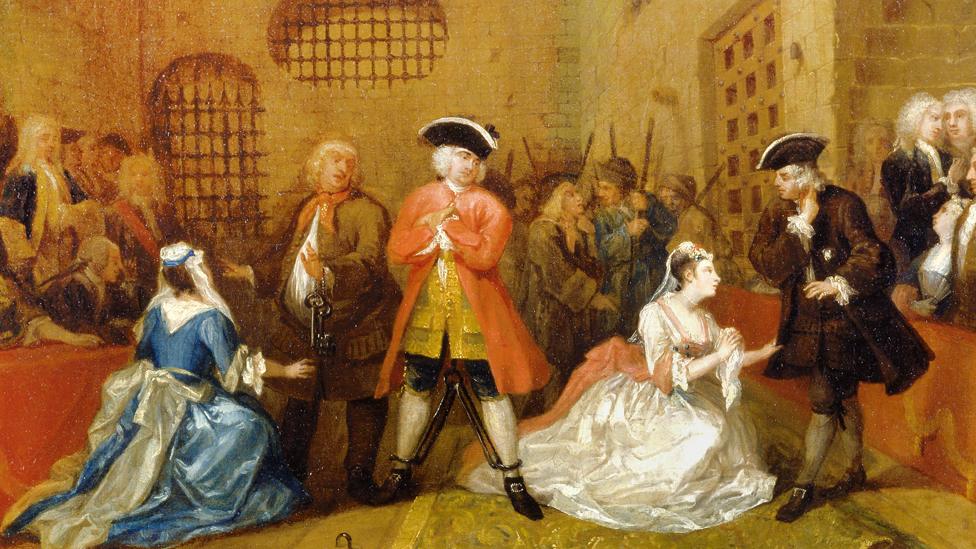The Vocabularist: How we got the word 'impeachment'
- Published

Opposition MPs wave leaflets demanding "Impeachment now!" for Brazil"s President Dilma Rousseff
The debates leading to the impeachment of the president of Brazil has led to stirring political drama, with the English word impeachment emblazoned on many a banner and leaflet, writes Trevor Timpson.
The power of impeachment, by which the English House of Commons accused people who were then tried by the House of Lords, was first used in 1376., external
Was the accused person pelted with peaches? Perhaps sometimes, but that is not the origin of the word.
French dictionaries trace "empêcher", meaning to prevent or hinder, back to an Anglo-Norman Psalter of the 12th Century.
Where Latin versions of a psalm say God "impedivit" the Israelites,, external the Psalter translates this as "empedecad".
Impedivit is from the Latin "impedio" meaning trap or hinder, perhaps "trip up" - related to pedis meaning "of a foot". "Empedecad" is more akin to impedicare, to trap - from pedica meaning a shackle or snare.
English had adapted empêcher by the late 14th Century when the reformer John Wyclif preached against the misuse of Church privileges.
"Whatsoever thief or felon" takes refuge in a house of religion, said Wyclif, he can dwell there all his life "and no man empeche hym".

Polly Peachum (right) pleads with her father for the life of Macheath (centre) in the Beggar's Opera - painting by William Hogarth
John Trevisa's translation of Ralph Higden's Latin chronicle at about the same time relates that Queen Emma, wife of King Cnut, was cleared of an accusation of conspiracy by the Archbishop of Canterbury, by walking barefoot on nine hot iron ploughshares, to "eskape of his enpechement".
It was at the time of these writings that the practice of impeachment by the House of Commons first appeared. It was at its height in the turbulent politics of the 17th Century, and still familiar enough in the 18th for it to be adapted into the US constitution, where the House of Representatives impeaches, and the Senate tries. It has not been used in Britain since 1806.
For many years "peaching" was underworld slang for denouncing someone to the authorities. In John Gay's Beggar's Opera (1728-9) the villainous Peachum is accustomed to deal in stolen goods and inform on criminals (peach 'em) when they stop being useful to him.
He advises his daughter Polly when he hears she has married the highwayman Macheath: "Secure what he hath got, have him peach'd the next sessions, and then at once you are a rich widow."
The Latin word for a peach is persicum, the fruit of a "persica malus" ("Persian apple-tree"). That gave us our word via French pêche (probably originally persche).

The Vocabularist
Select topic "language" to follow the Vocabularist on the BBC News app

Subscribe to the BBC News Magazine's email newsletter, external to get articles sent to your inbox.